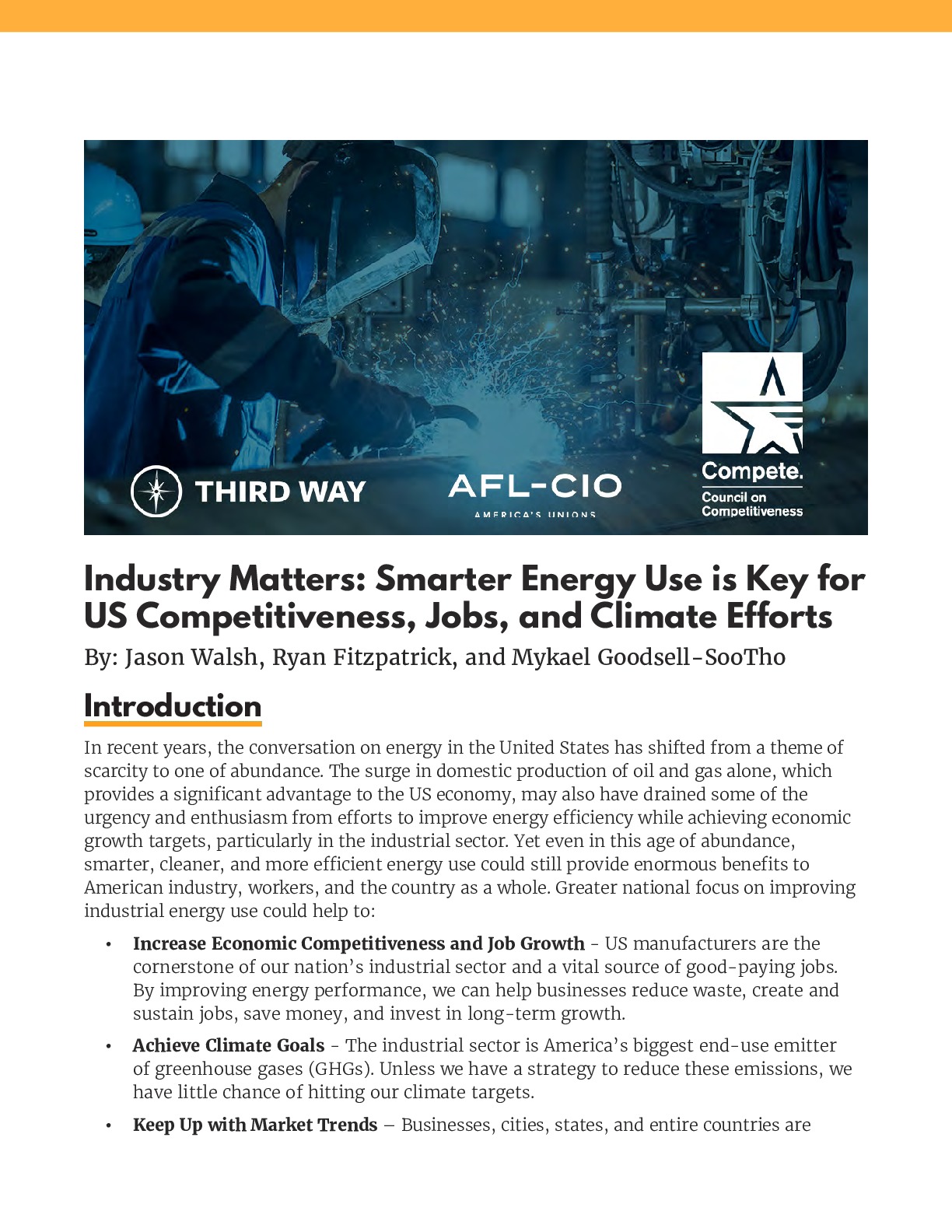In recent years, the conversation on energy in the United States has shifted from a theme of scarcity to one of abundance. The surge in domestic production of oil and gas alone, which provides a significant advantage to the U.S. economy, may also have drained some of the urgency and enthusiasm from efforts to improve energy efficiency while achieving economic growth targets, particularly in the industrial sector. Yet even in this age of abundance, smarter, cleaner, and more efficient energy use could still provide enormous benefits to American industry, workers, and the country as a whole. Greater national focus on improving industrial energy use could help to:
- Increase Economic Competitiveness and Job Growth - U.S. manufacturers are the cornerstone of our nation’s industrial sector and a vital source of good-paying jobs. By improving energy performance, we can help businesses reduce waste, create and sustain jobs, save money, and invest in long-term growth.
- Achieve Climate Goals - The industrial sector is America’s biggest end-use emitter of greenhouse gases (GHGs). Unless we have a strategy to reduce these emissions, we have little chance of hitting our climate targets.
- Keep Up with Market Trends – Businesses, cities, states, and entire countries are 2 enacting policies to promote cleaner and more efficient energy use, including standards and incentives that will impact major industries. By helping our manufacturers stay on the forefront of changing energy demand, the US can ensure their ongoing access and competitiveness in evolving global markets.
This report examines each of these reasons for making industrial efficiency and emissions reduction a national priority. It also lays out a number of clear, achievable pathways to saving energy, increasing competitiveness and cutting carbon in U.S. industry, including wider use of industry best practices, increased deployment of existing technologies, and accelerated innovation of new technology solutions. These pathways offer a useful guide for future policy discussions between government, industry, labor and other stakeholder groups.


